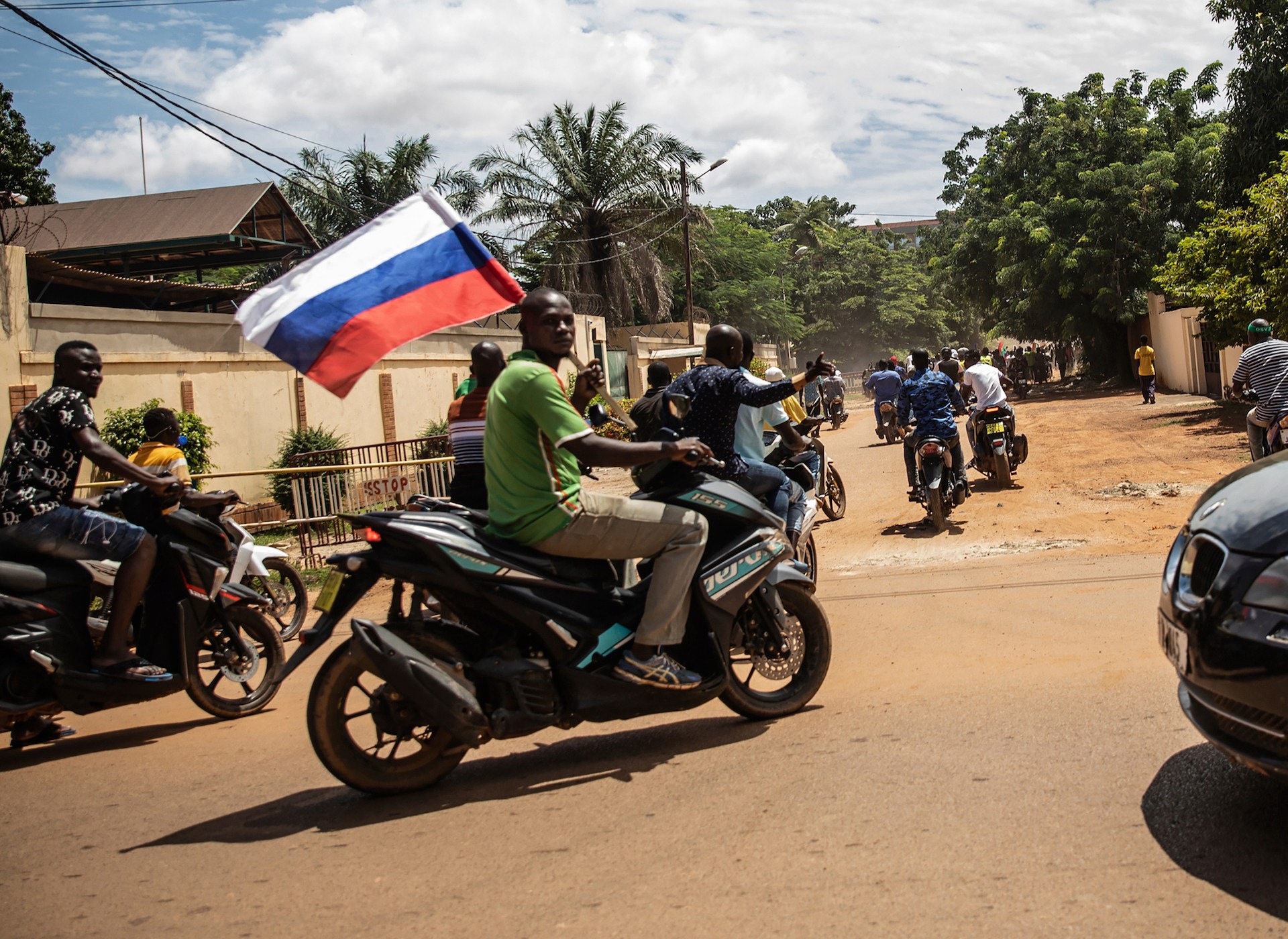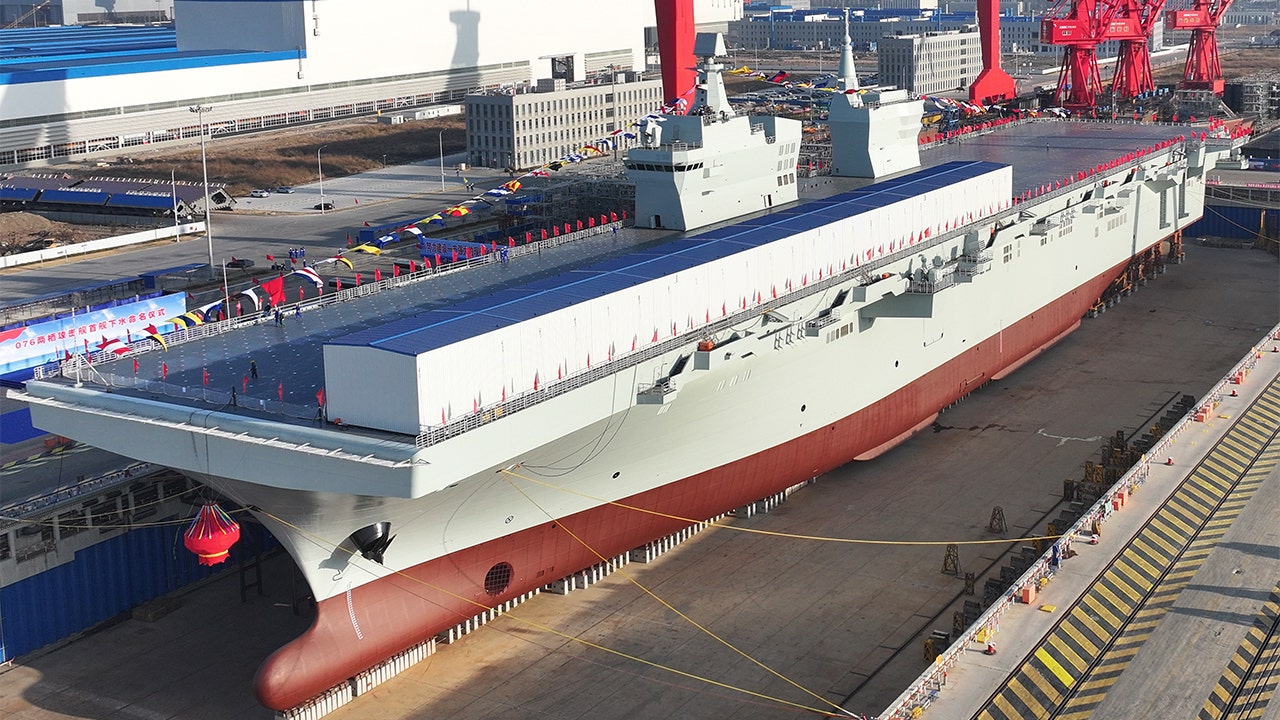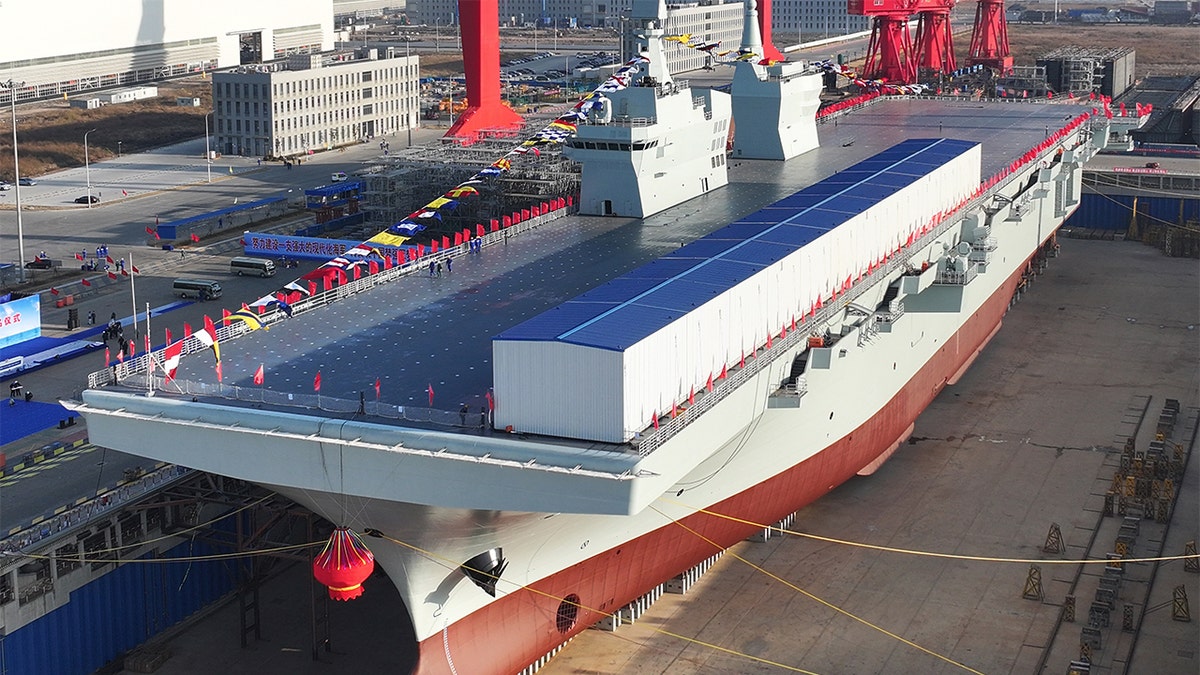World
After mutiny, clouds hover over Wagner’s operations in Africa

Many observers in Western and Central Africa watched with piqued attention as the Wagner Group mutiny unfolded in Russia, curious about its significance on the mercenary force’s vast operations on the continent.
Since 2018 when Wagner arrived in Central African Republic (CAR) to fight off a rebel uprising, the armed group has expanded its footprint, later launching operations in Mali, Sudan and Libya. For African governments struggling to deal with escalating domestic insecurity, Wagner became a lifeline.
After the mercenaries helped CAR’s President Faustin-Archange Touadéra in 2018 against rebel forces, Russian became an official language taught in the country’s schools, and Wagner leaders became dignitaries in the capital Bangui.
In Mali, the military lost patience in a decade-long collaboration with former colonial master France in tackling insecurity from armed groups linked to al-Qaeda and ISIL (ISIS) and signed up with Wagner instead.
But after last week’s attempted Wagner mutiny, a cloud is hovering over not only the armed group’s foreign activities, but also the bilateral relationships between Russia and African nations that employ the mercenary outfit.
Russian Foreign Minister Sergey Lavrov said last week that “several hundred servicemen” in CAR working as “instructors” at the behest of the government would continue their efforts.
Yabi Gilles, founder of West Africa Think Tank (WATHI), told Al Jazeera the comments came as no surprise.
“The declaration of Lavrov was a clear indication of what was quite obvious. Wagner is not just a mercenary company. Wagner is a company that has been tolerated by the Russian government and has been acting in the interest of Russia, especially outside of the country,” Gilles said.
“For Mali and CAR, what is important for is to have the assurance that cooperation with Russia will continue.”
‘Not sure what will happen’
Military options also exist if Wagner is pulled out of the continent as other private military contractors have begun operating in Africa in recent years.
“The managers of these new companies are former Wagner employees with a deep knowledge of Wagner’s activities in Africa, and the Russian state could easily use these men to help retake all of Wagner’s activities, especially in Central Africa,” said Charles Bouessel, senior analyst on Central Africa Republic for the International Crisis Group.
Still, the uncertainty has caused concern for governments reliant on Wagner’s security expertise.
“We have seen a little bit of stress from the authorities. We see this kind of stress because they are not 100 percent sure what will happen, whether Wagner will survive in the next few months or not,” said Bouessel.
But much like for the Kremlin, the Wagner rebellion has proved to be a cautionary tale for African governments.
African nations will now be extremely cautious as the Wagner revolt against Moscow could easily play out at home, said Bakary Sembe, regional director at the Timbuktu Institute Africa Centre for Peace Studies.
“They have to stop thinking about outsourcing their security. It is not a viable strategy and now, regarding the new situation, African countries will be more careful when it comes to using Wagner,” he said.
Despite Moscow’s assurances, Mali and CAR are in an uncomfortable position. “Mali and other countries that are linked to these non-state elements are now caught between Wagner’s weapons and Moscow’s wrath,” Sembe said.
West out, Wagner in
At Bamako’s request, French troops – welcomed in Mali in 2013 when the conflict began – have withdrawn. The United Nations peacekeeping force is also on its way out after the UN Security Council voted to immediately withdraw.
Analysts said it was resentment against France, previously the sole external influence in the region, for failing to stem the expansion of armed groups and supporting authoritarian regimes that opened the door for Wagner, led by the now-exiled Yevgeny Prigozhin.
“In Francophone countries, the presence of Russia is an expression of protest against France. It is a sign of revolt, but it has alienated them against the West,” Sembe told Al Jazeera.
“You have the French intervention in Mali with several operations and you have the … failure of France and international partners to support Mali to get out of the insecurity.”
With the UN force departing and Wagner destabilised, fear hovers over the delicate security atmosphere in Mali and its impact on the already beleaguered Sahel region.
“Clearly, we must realise these countries don’t have their own agency. And at the same time, it is also a reality for these countries – they don’t have the willingness to carry out internal reforms so that they can really be in charge of their own security,” Gilles said.
While Wagner was invited in, the mercenary force has been accused of involvement in human rights abuses in Africa. The United States has designated Wagner as a “transnational criminal organisation” responsible for widespread abuses.
A change of guard will likely not reverse the status quo. “I think it won’t change substantially the method of accountability with Wagner, the activities will be certainly maintained in this kind of form,” Bouessel said.
“Whether it is Prigozhin or another war entrepreneur, it does not really matter. It is more about who is going to control the company.”

World
Jay-Z’s Accuser Can Remain Anonymous, Judge Criticizes His Lawyer’s ‘Relentless’ Filings

The woman accusing Jay-Z and Sean “Diddy” Combs of sexually assaulting her when she was 13 can proceed anonymously (“at least for now”) in her lawsuit against the rappers, a judge ruled Thursday.
New York Judge Analisa Torres also condemned the legal team representing Jay-Z (real name Shawn Carter) for the “relentless filing of combative motions containing inflammatory language and ad hominem attacks [on accuser’s lawyer, Tony Buzbee],” according to a court order obtained by Variety. “Since Carter’s attorney first appeared in this case seventeen days ago, he has submitted a litany of letters and motions attempting to impugn the character of Plaintiff’s lawyer [Buzbee].”
Judge Torres continues, calling the complaints “inappropriate, a waste of judicial resources, and a tactic unlikely to benefit his client [Jay-Z].”
Jane Doe, who filed her original lawsuit against Combs in October, and re-filed it with Carter’s name in early December, will remain anonymous at this early stage of the litigation. She could still be required by the court to reveal her identity.
Alex Spiro, a lawyer for Carter, recently asked the judge to dismiss the entertainer from the woman’s lawsuit. He cited a report from NBC News that revealed the accuser had admitted to some “inconsistencies and outright impossibilities” in her allegations. His team has also issued public statements referring to Buzbee as a “1-800 lawyer” who is “in the pursuit of money and fame.”
Judge Torres denied Carter’s request to dismiss the case. Representatives for Carter did not immediately respond to Variety‘s request for comment.
In the last few weeks, Buzbee issued his own lawsuit against Roc Nation, the entertainment company owned by Carter, claiming they are using “shadowy operatives” to bribe his former clients into filing “frivolous” complaints against him. Carter has also sued Buzbee for defamation.
Jane Doe, who alleges she was 13 when Combs and Carter raped her in 2000, says she encountered the pair at an afterparty for the MTV Music Video Awards.
Carter responded to the allegation almost immediately. “You have made a terrible error in judgment thinking that all ‘celebrities’ are the same,” Carter wrote in a letter addressing Buzbee. “I’m not from your moral world. I’m a young man who made it out of the project of Brooklyn. We don’t play these types of games. We have very strict codes and honor. We protect children, you seem to exploit people for personal gain. Only your network of conspiracy theorists, fake physics, will believe the idiotic claims you have levied against me that, if not for the seriousness surrounding harm to kids, would be laughable.”
Combs has been held in a Brooklyn jail since September. He will remain there until his trial is scheduled to begin in May.
World
China unveils world's largest amphibious warship

China has launched the first of its new line of amphibious assault ships and its biggest warship yet, strengthening what is already the world’s largest navy.
The Sichuan, a type 076 new-generation amphibious assault ship, was put into the water at a launch and naming ceremony on Friday.
With a full load displacement of 40,000 tons, the warship ranks among the world’s largest amphibious assault ships, featuring a dual-island superstructure and full-length flight deck, the People’s Liberation Army Navy (PLAN) said in a statement.
JOE BIDEN POSES WITH HUNTER’S CHINESE BUSINESS ASSOCIATES IN NEWLY SURFACED PHOTOS: ‘INCREDIBLY DAMNING’
A launching ceremony is held to unveil China’s first Type 076 new-generation amphibious assault ship, the Sichuan, at Hudong-Zhonghua Shipbuilding, a Shanghai-based subsidiary of China State Shipbuilding Corp, on December 27, 2024, in Shanghai, China. (Pu Haiyang/VCG via Getty Images)
China Bugle, an news outlet associated with the PLAN’s news media center, reported the ship will play a key role in transforming and developing the Chinese navy and enhancing its combat capabilities in the far seas.
The Sichuan is capable of launching fighter jets and unmanned drones from an electromagnetic catapult. It is designed to carry ground troops in landing craft with air support.
TIK TOK DIVESTMENT COULD BE ‘DEAL OF THE CENTURY’ FOR TRUMP, HOUSE CHINA COMMITTEE CHAIR SAYS

Named after southwest China’s Sichuan Province, the independently-developed new vessel was put into the water at a launch and naming ceremony. (Pu Haiyang/VCG via Getty Images)
The ship also features “arrester technology” that Chinese researchers boast will allow fighter jets to land on its deck, similar to an aircraft carrier.
China launched its first amphibious assault ship, a type 075 class warship called the Hainan, in 2019.
CHINA WARNS US TO STOP ARMING TAIWAN AFTER BIDEN APPROVES $571M IN MILITARY AID

Chinese military officials celebrate at the launch ceremony for the Sichuan. (Pu Haiyang/VCG via Getty Images)
The PLANmi has been working on modernizing its forces for more than a decade, with the aim of being able to operate globally rather than being restricted to waters near the Chinese mainland. China first managed to launch fighter jets with the new electromagnetic technology on its homemade aircraft carrier, the Fujian, which launched two years ago.
The Sichuan will now undergo additional tests at sea.
China has the largest navy in the world and is consistently trying to upgrade its fleet. Recently, researchers found that the country is working on designing a nuclear-powered aircraft carrier, which would allow it to deploy its ships in distant waters without needing a base to refuel.
The U.S. Navy currently has 11 nuclear-powered aircraft carriers deployed in strategic locations globally, including in the Asia-Pacific.
The Associated Press contributed to this report.
World
Health worker displaced by Israeli attacks in Gaza dies of ‘extreme cold’

Many people in Gaza lack adequate shelter and are malnourished after more than a year of Israeli attacks and blockades.
A Palestinian healthcare worker has died due to “extreme” weather conditions, according to a statement by the enclave’s Ministry of Health, as severe cold compounds the hardship faced by people displaced by Israel’s relentless attacks.
The body of Al-Hakim Ahmed al-Zaharneh, who worked at the European Gaza Hospital, was found inside his tent in al-Mawasi area, west of the city of Khan Younis, southern Gaza, the ministry said on Friday.
“This incident comes in light of the difficult humanitarian conditions that displaced citizens are experiencing, as the suffering of Gaza residents increases due to low temperatures and the lack of heating means in tents,” the ministry said.
The ministry said earlier that four Palestinian babies have died in tents in recent days amid the cold weather and widespread malnutrition.
Al Jazeera’s Hani Mahmoud, reporting from Deir el-Balah in central Gaza, said that the number of casualties in vulnerable groups is increasing due to worsening weather conditions.
“For 14 months now, people here have been lacking basic necessities to help them survive these difficult conditions – even in summer,” he said.
“Now in winter, the temperature has dropped very low, [and] people in tent camps feel the cold as being [colder] than the actual levels.”
He said that mothers often lack the strength or ability to breastfeed as they are malnourished and unwell.
“The conditions are worse for vulnerable groups like babies and, in the absence of [humanitarian aid], it is natural that deaths will happen.”
The vast majority of the Gaza Strip’s 2.4 million residents have been displaced at least once since war broke out with the Palestinian group Hamas on October 7, 2023, with many people living in tents that offer little protection from the cold, rain and flooding.
The United Nations and other organisations have repeatedly decried the worsening humanitarian conditions in Gaza, as Israeli attacks and blockades severely curtail access to food, water, medicine and other supplies.
A leading United States government organisation monitoring food crises around the world withdrew a new report this week warning of imminent famine in north Gaza under what it called Israel’s “near-total blockade,” after the US asked for its retraction, US officials told The Associated Press.
The move follows public criticism of the report from the US ambassador to Israel.
The report by the Famine Early Warning Systems Network (FEWS NET) had warned that a “famine scenario” was unfolding in northern Gaza where Israel launched a renewed offensive in early October.
Meanwhile, on Friday, the director of Gaza’s Health Ministry told Al Jazeera that Israeli forces stormed the Kamal Adwan Hospital, one of the few remaining medical facilities in north Gaza, and forced the 350 people there to evacuate, including all the patients and staff. He said contact with the hospital had been lost.
Israel’s war in Gaza has killed at least 45,436 Palestinians and wounded 108,038 since October 7, 2023, according to figures released on Friday by Gaza’s Health Ministry.
An estimated 1,139 people were killed in Israel during the Hamas-led attacks that day and more than 200 were taken captive.
-
/cdn.vox-cdn.com/uploads/chorus_asset/file/24924653/236780_Google_AntiTrust_Trial_Custom_Art_CVirginia__0003_1.png)
/cdn.vox-cdn.com/uploads/chorus_asset/file/24924653/236780_Google_AntiTrust_Trial_Custom_Art_CVirginia__0003_1.png) Technology6 days ago
Technology6 days agoGoogle’s counteroffer to the government trying to break it up is unbundling Android apps
-

 News1 week ago
News1 week agoNovo Nordisk shares tumble as weight-loss drug trial data disappoints
-

 Politics1 week ago
Politics1 week agoIllegal immigrant sexually abused child in the U.S. after being removed from the country five times
-

 Entertainment1 week ago
Entertainment1 week ago'It's a little holiday gift': Inside the Weeknd's free Santa Monica show for his biggest fans
-

 Lifestyle1 week ago
Lifestyle1 week agoThink you can't dance? Get up and try these tips in our comic. We dare you!
-
/cdn.vox-cdn.com/uploads/chorus_asset/file/25672934/Metaphor_Key_Art_Horizontal.png)
/cdn.vox-cdn.com/uploads/chorus_asset/file/25672934/Metaphor_Key_Art_Horizontal.png) Technology3 days ago
Technology3 days agoThere’s a reason Metaphor: ReFantanzio’s battle music sounds as cool as it does
-

 Technology1 week ago
Technology1 week agoFox News AI Newsletter: OpenAI responds to Elon Musk's lawsuit
-

 News4 days ago
News4 days agoFrance’s new premier selects Eric Lombard as finance minister

















